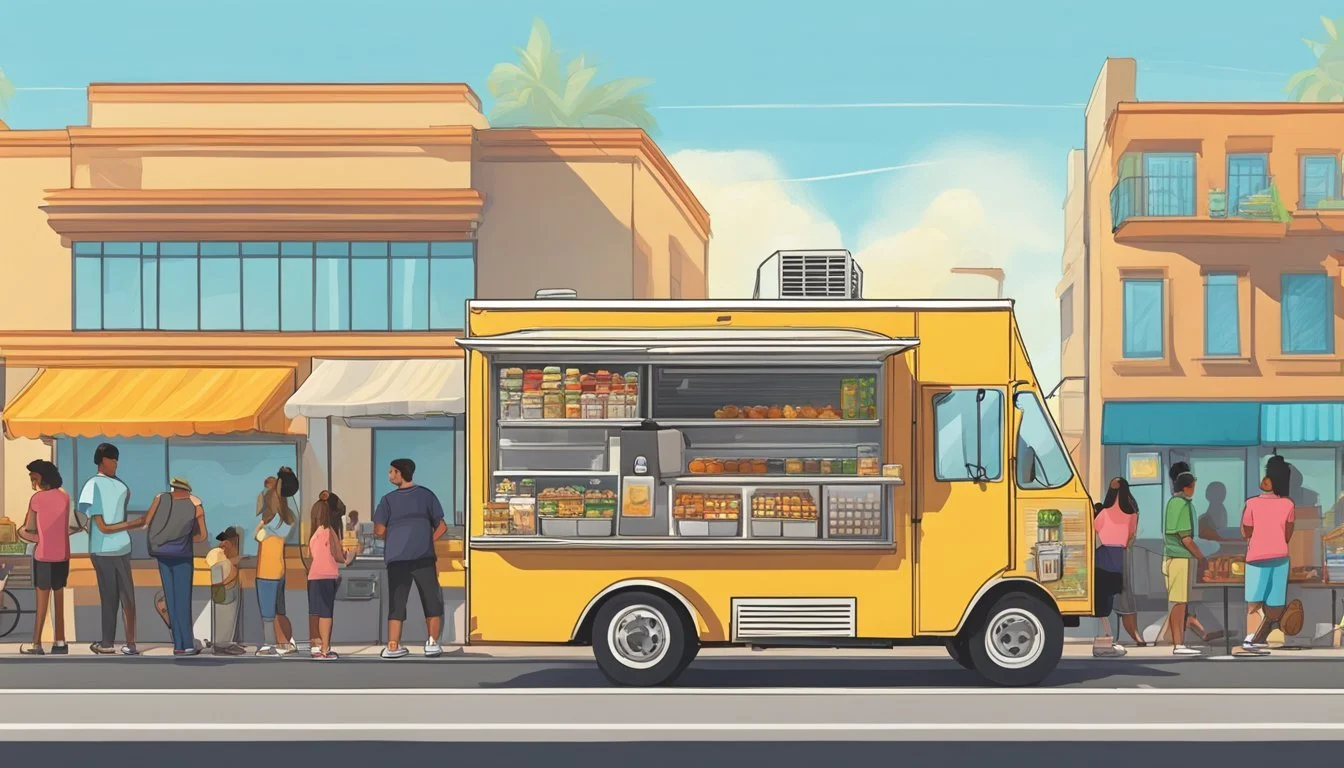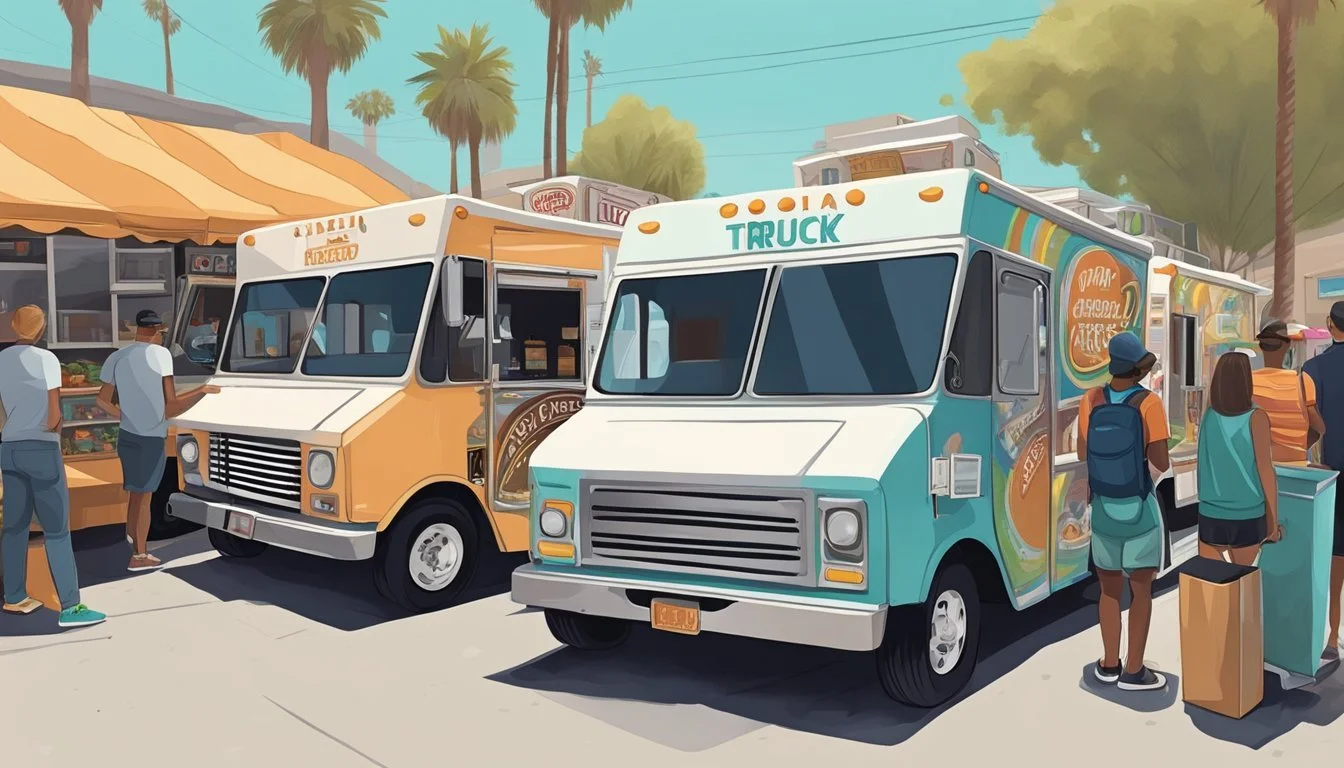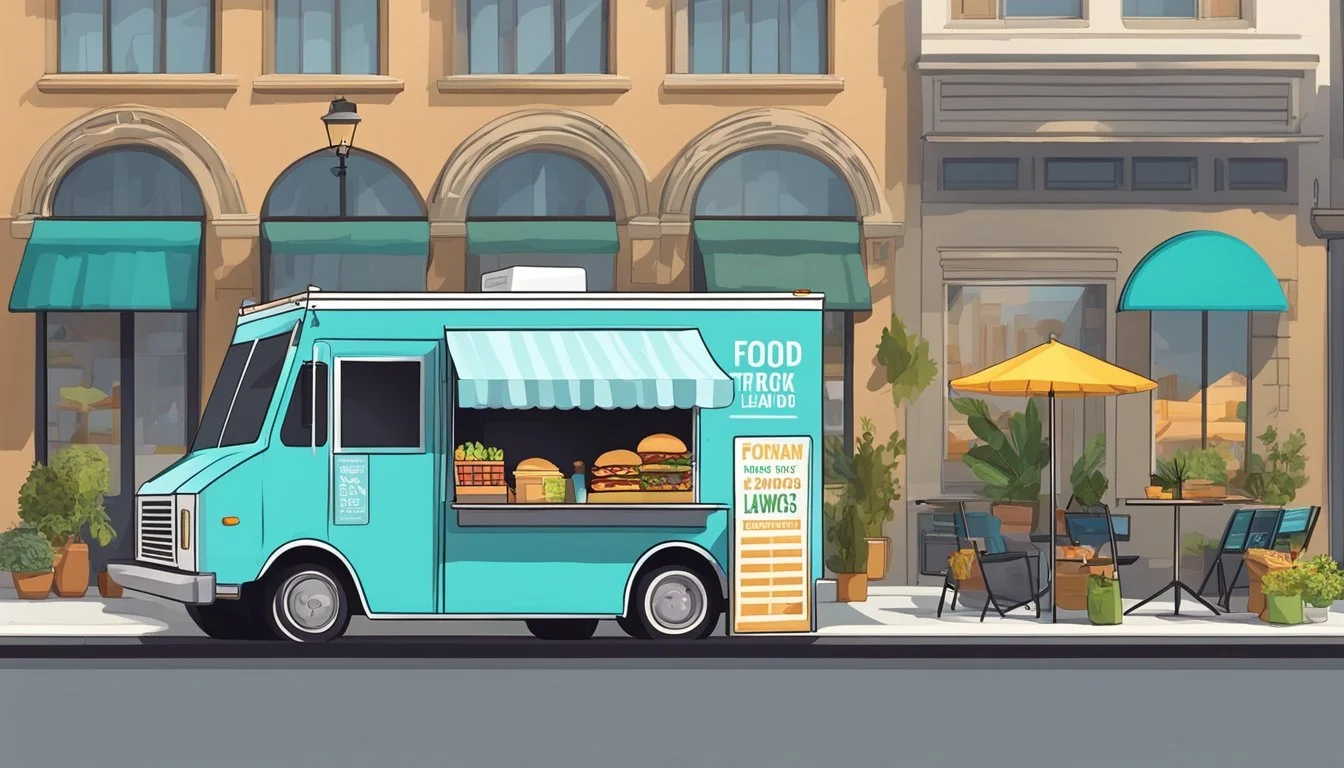Food Truck Laws Fontana, California
Navigating Regulations for Mobile Vendors
Operating a food truck in Fontana, California requires adherence to specific regulations designed to ensure public safety, maintain standards, and regulate the industry. The City of Fontana classifies food truck events into major and minor categories, each with its own set of requirements for obtaining the necessary permits. These classifications and requirements are laid out in the city's municipal code, which provides detailed guidance for potential and current food truck operators.
The city's code mandates that all food trucks in Fontana must secure a permit before partaking in events or regular operations. The conditions include compliance with local health and safety regulations, as well as business licensing procedures. For instance, the suspension or revocation of permits is a risk faced by operators who violate any laws relating to food truck operations, highlighting the importance of understanding and following these laws meticulously.
Beyond specific local ordinances, there are state-level regulations that food truck operators must follow. These include obtaining a business license and understanding the nuances of California's food vending laws, which encompass health department approvals, safety standards, and other authorities' directions. Operators looking to start or maintain a food truck business in Fontana should be well-versed in the laws and regulations that govern such endeavors in California.
Understanding Food Truck Laws in Fontana
Operating food trucks in Fontana adheres to both local and state regulations, aimed to ensure public health and safety, as well as proper business operations. It is vital that food truck proprietors secure the necessary permits and understand tax obligations to legally operate within the city.
Local Laws and Regulations
Fontana classifies food truck events into major or minor categories, and each type has specific requirements under city ordinances. For instance, the Fontana municipal code states that a permit is required for food truck events, mandating that operators adhere to local guidelines for their classification.
Mobile Food Facility Permit
Operators must obtain a Mobile Food Facility Permit before hitting the streets. This signifies the truck's compliance with vehicle and sanitation standards set by local governance. Each vehicle must be inspected and approved, ensuring they are suitable for food service operations.
Health Department Permit
A Health Department Permit is crucial as it relates to the sanitary conditions of the food truck. California laws dictate that food must be handled safely – meaning at least one person with a food handling permit should always be present during the operating hours of a food truck.
Seller's Permit and Sales Tax
Every Fontana food truck must hold a Seller's Permit, which is issued by the California Department of Tax and Fee Administration. This permit allows for the legal selling of food items and is also used to report and pay sales tax.
In brief, successful food truck operations in Fontana, CA, necessitate a thorough understanding of local by-laws, permits from both the health department and motor vehicle authority, and adherence to state-wide sales tax regulations. Compliance is the foundation of a thriving food truck venture in this city.
Starting a Food Truck Business
Embarking on a food truck business in Fontana, California requires diligent planning and compliance with specific regulations. A prospective business owner must navigate through creating a detailed business plan, selecting the appropriate business entity, acquiring the necessary licenses and permits, and securing a prime business location for operation.
Creating a Business Plan
A food truck business plan serves as the foundational blueprint for success. It should articulate the food truck's concept, menu, target market, and financial projections. This document is not only crucial for the business owner's clarity but also for securing potential investors or food truck funding.
Choosing a Business Entity
Deciding on a business entity is critical for defining structure and liability. One can operate as a sole proprietorship, partnership, limited liability company (LLC), or corporation. LLCs are often favored for combining the liability protection of a corporation with the tax efficiencies of a partnership.
Obtaining Necessary Licenses and Permits
To lawfully operate a food truck in Fontana, one must obtain a range of licenses and permits. These can include a business license, vehicle license, and food handling permit. An Employer Identification Number (EIN) is also necessary for tax purposes and hiring employees. It's essential to stay compliant with both state and local regulations.
Securing a Business Location
Finding the best business location involves more than simply identifying popular spots. The business owner must negotiate parking regulations and secure the necessary permissions to operate in public or private spaces. Strategically selecting a location can greatly influence the food truck's visibility and foot traffic, contributing to its overall success.
Operational Requirements for Food Trucks
Operating a food truck in Fontana, California, involves adhering to a detailed set of regulations to ensure the safety and legality of the business. These requirements span from rigorous health and safety protocols to proper waste management and staff training.
Food Safety and Inspection
Food truck operators must obtain a food safety certification and ensure all staff possess a valid food handler card, as these are critical for maintaining public health standards. Regular health inspections are conducted to verify compliance with food storage, preparation, and serving regulations. Inspections focus on preventing foodborne illness and ensuring overall food safety.
Vehicle and Equipment Maintenance
Maintaining the vehicle and equipment in optimal condition is mandatory to meet safety and operational standards. The truck must pass a vehicle inspection, and a commercial driver’s license may be necessary depending on the size and type of the truck. Equipment used for food preparation must be regularly serviced to ensure hygiene standards are met.
Waste Disposal and Environmental Concerns
Proper waste disposal protocols must be followed to minimize the food truck's environmental impact. This includes the correct handling of grease, packaging, and food waste, in accordance with Fontana's environmental regulations. Food trucks should also have a system for water waste that adheres to local standards.
Hiring and Managing Staff
When hiring staff, food truck employers must procure an employer identification number (EIN) for tax purposes. They must comply with labor laws concerning wages and work hours. Personnel management includes training staff to meet operational requirements and ensuring that the team can uphold food safety and customer service standards.
Marketing Strategies for Food Truck Owners
Effective marketing is critical to the success of food truck businesses. Owners should focus on crafting a distinctive brand, engaging in local events, and establishing a strong online presence.
Building a Brand and Marketing
Food truck owners must create a compelling brand that communicates their food concept and values. This starts with selecting a memorable business name, which will be the customer's first point of contact. The branding must extend to the truck's design and the staff's attire, ensuring that it is cohesive and recognizable. Utilizing the California Business Portal (CalGold) to ensure all branding aligns with regulations can save owners headache down the line.
Event Participation and Catering
Getting involved with food truck events is vital for visibility. Participation in community events, festivals, and special events serves dual purposes: it provides more exposure and solidifies the food truck's place in the local culture. For many food trucks, securing catering opportunities at these events is a significant revenue stream. It's important to note that special events might require additional permits or liquor licenses, which owners need to obtain beforehand.
Leveraging Social Media and Online Presence
A robust online presence can greatly influence a food truck's popularity. Social media platforms are powerful tools for food truck owners to share their location, menu updates, and interact with customers. Establishing a website with the food truck's address, menu, and story can help build a loyal following. Regular updates and high-quality food imagery can boost the food truck's appeal and help them stand out in a competitive market.
Additional Considerations for Food Truck Operators
For food truck operators in Fontana, California, navigating the maze of requirements extends beyond the initial setup. Keeping abreast of renewals, complying with laws, managing risks, and adopting solid financial strategies are crucial for sustained success.
Renewing Licenses and Permits
Food truck operators must regularly renew their permits and licenses to avoid operational disruptions. The Health Department mandates that businesses keep their permits updated to ensure ongoing compliance with local and state health standards. Additionally, maintaining a current fictitious business name with the local government prevents potential legal complications.
Compliance with State and Federal Laws
Operators must strictly adhere to state and federal laws, which include food safety regulations and employment laws. A federal tax ID is essential for legal operation and tax purposes. They should also ensure that all food sold is state-approved to mitigate health risks to the public.
Insurance and Risk Management
A robust insurance policy is not only prudent but often required to safeguard against various risks. Operators should secure coverage that includes liability, vehicle, and property insurance, and verify that their policy meets or exceeds the minimum requirements set by government agencies. Securing a security deposit may also be advantageous for financial protection against unforeseen events.
Financial Management and Growth Strategies
Sound financial management underpins the growth of any mobile eatery. Food truck owners should establish a strong credit profile and explore growth strategies, such as transitioning from a food truck to a brick-and-mortar restaurant, when viable. Utilizing resources like Legion Food Trucks can provide insight into managing and scaling food truck operations.
Conclusion
Fontana, California has implemented measures to regulate the operation of food trucks and vendors within the city bounds, aligning with standards that aim to protect public health and safety.
The city's enforcement action includes the confiscation of carts if vendors are non-compliant with the mandated city ordinance. This ordinance has sparked a degree of contention among residents and stakeholders, pointing to differing perspectives on street vending practices.
Despite debates, San Bernardino County has expressed a willingness to allow food trucks to operate, though on a limited basis to balance entrepreneurial activity with regulatory compliance.
Food truck and street vendor policies continue to evolve as the needs and concerns of both vendors and patrons are taken into consideration. Fontana has been proactive, requiring proper licensing while examining the breadth of impact such regulations may have on small business owners and the community they serve.
Through ongoing dialogue and enforcement practices, Fontana is seeking a pathway that best serves the interests of all its residents while upholding the city's legal and health standards.





